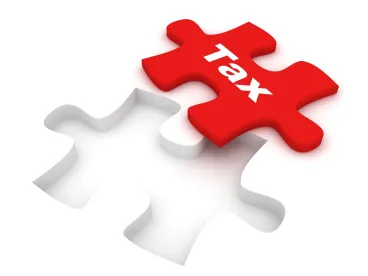Illinois Legislators have recently introduced three bills that would amend the Illinois False Claims Act (“Act”) to restrict the ability to bring tax-related claims. Senate Bill 9, the proposed “grand bargain” to resolve Illinois’ budget stalemate, includes language that would eliminate the ability to use the Act to bring tax claims. In addition, Representative Frank Wheeler and Senator Pam Althoff have introduced House Bill 1814 and Senate Bill 1250, respectively, which are identical pieces of legislation that would significantly restrict a private citizen’s right to bring tax-related claims.
Senate Bill 9, if adopted in its current form, would eliminate the ability to bring a tax-related claim under the Act. Currently, the Act only excludes the right to bring income tax-related claims. 740 ILCS 175/3(c). This would effectively conform the Act to the federal False Claims Act, which does not extend to tax claims. Rather, tax-related claims are brought before the Internal Revenue Service’s Whistleblower Office as whistleblower claims.
House Bill 1814 and Senate Bill 1250 (“Bills 1814/1250”) preserve the right to bring tax claims under the Act, and they maintain the prohibition against income tax claims. However, in a significant improvement over current practice, the Bills would amend the Act to restrict the ability of a whistleblower or its counsel to control or profit from the filing of tax claims. In addition, they enhance the role played by the Department of Revenue (“Department”) in determining whether a whistleblower’s tax claim should be pursued. Effectively, the Bills make the filing of state tax-related whistleblower claims more like the procedure for bringing a federal tax violation before the IRS.
Currently, the Act authorizes private citizens, termed “relators,” to initiate litigation to force payment of tax allegedly owed to the State. 740 ILCS 175/4(b). Hundreds of such claims have been filed in Illinois by whistleblowers claiming a failure to collect and remit sales tax on internet sales. Relators file a complaint under seal with the circuit court and serve the complaint on the State. Id. 175/4(b)(2). The Illinois Attorney General’s office then has the opportunity to review the allegations and decide whether to intervene in the litigation. Id. 175/4(b)(2), (3). The Department is not named as a Defendant and there is no requirement to involve the Department in the litigation. If the Attorney General declines to proceed with the litigation, the relator may proceed with the lawsuit on its own and, if successful, is entitled to an award of 25 percent to 30 percent of the proceeds or settlement of the action, plus its attorneys’ fees and costs. Id. 175/4(d)(2). Even if the State intervenes and proceeds with the litigation, eliminating the relator’s day-to-day involvement, the relator is entitled to an award of 15 percent to 25 percent of the proceeds of settlement, plus attorneys’ fees and costs. Id. 175/4(d)(1).
In contrast, Bills 1814/1250 provide that only the Attorney General (“AG”) and the Department have the right to initiate claims under the Act for taxes administered by the Department. Whistleblowers are required to report an alleged tax violation to the Department. The Department must investigate the allegations and make a recommendation to the AG as to whether or not the AG should file suit based on the allegations. Bills 1814/1250, 740 ILCS 175/4.5(b). The AG can accept or reject the Department’s recommendation. It can also bring suit in the absence of a Department recommendation. Id. If the AG initiates litigation based on a whistleblower’s allegations, the whistleblower is entitled to an award of 15 percent to 30 percent of the collected proceeds of the action and “related actions” or settlement, but no attorneys’ fees. Id., 740 ILCS 175/4.5(d). The whistleblower has no ability to proceed with litigation on its own if the Department or AG find the litigation unworthy. These changes would significantly reduce the ability of a whistleblower or its counsel to profit from the filing of nuisance value claims.
Bills 1814/1250 also provide that the Department has discretion to initiate an audit based on a whistleblower’s allegations and affirm that the audited entity has all the rights available to any other taxpayer to dispute any additional assessment of tax, interest and/or penalty charges. Id., 740 ILCS 175/4.5(c). Whistleblowers may not participate in or challenge the Department’s audit determination. If the Department initiates an administrative action based on a whistleblower’s allegations, the whistleblower is entitled to an award of 10 percent to 15 percent of the collected proceeds of the action or settlement. Id., 740 ILCS 175/4.5(d).
Bills 1814/1250 also provide the much-needed ability to reduce the percentage award to a whistleblower under certain circumstances. First, the Department has the discretion to reduce the percentage award to a whistleblower to 10 percent of the proceeds or settlement if it determines that the action (administrative or judicial) against a taxpayer is based primarily on disclosures from other sources. Id., 740 ILCS 175/4.5(e). (This provision is in the present version of the Act, but is a right afforded to the AG, not the Department.) In addition, the Department has discretion to reduce the whistleblower’s award without limitation if it determines the whistleblower planned and initiated the violation of the Act. Id., 740 ILCS 175/4.5(f). The latter change should significantly reduce the ability of whistleblowers to profit from the repetitive filing of tax claims based on transactions initiated by the whistleblower.
Bills 1814/1250 also would reduce the burden on the Circuit Courts with respect to these claims by requiring a whistleblower to file its claim with the Department, rather than the Court in the first instance, and by providing that Department award determinations are appealable exclusively to the Court of Claims. Id., 740 ILCS 175/4.5(g), 705 ILCS 505/8(j).
This is not the first time bills have been introduced to amend the Act. Similar efforts over the past several years have been stymied when the legislature failed to consider the bills in Committee hearings. Hopefully, the Illinois General Assembly will take action to enact one of these much-needed legislative changes this year.




 />i
/>i
